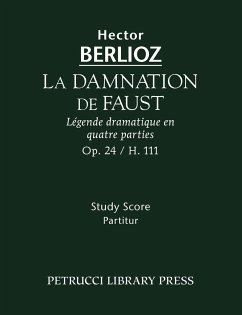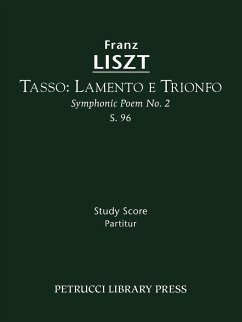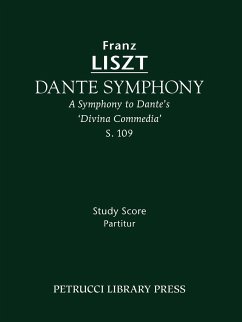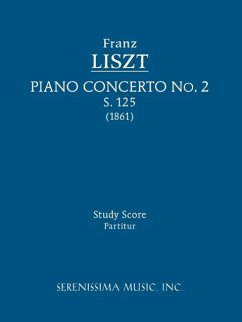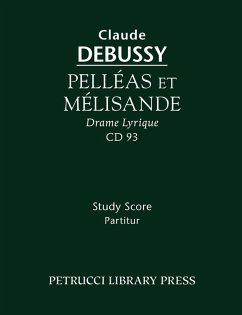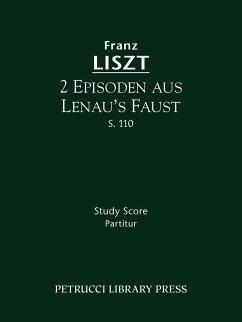
2 Episoden aus Lenau's Faust, S.110
Study score
Herausgeber: Kellermann, Berthold
Versandkostenfrei!
Versandfertig in 1-2 Wochen
15,99 €
inkl. MwSt.

PAYBACK Punkte
8 °P sammeln!
At least one of the two works inspired by Nikolaus Lenau's poem on the familiar Faust legend may have been originally composed for piano and later orchestrated . The first, "Der nächliche Zug" is a march-like work not often performed while the second, entitled "Der Tanz in der Dorfschenke" is better known as the "Mephisto Waltz No.1". This popular work was first heard for orchestra on March 3, 1861 with the composer conducting the Weimar Hofkapelle. The score reproduced here was originally issued by Breitkopf & Härtel of Leipzig in 1913 as part of the tenth volume of "Franz Liszt: Musikalisc...
At least one of the two works inspired by Nikolaus Lenau's poem on the familiar Faust legend may have been originally composed for piano and later orchestrated . The first, "Der nächliche Zug" is a march-like work not often performed while the second, entitled "Der Tanz in der Dorfschenke" is better known as the "Mephisto Waltz No.1". This popular work was first heard for orchestra on March 3, 1861 with the composer conducting the Weimar Hofkapelle. The score reproduced here was originally issued by Breitkopf & Härtel of Leipzig in 1913 as part of the tenth volume of "Franz Liszt: Musikalische Werke", edited principally by Berthold Kellermann. In contrast so many of the on-demand scores now available this one comes with all the pages with each image thoroughly checked to make sure it is readable, then beautifully printed on quality stock with an attractive glossy cover. Also included is an informative introduction by Liszt scholar Soren Afshar (Funper), a major contributor to the vast collection of Liszt pieces on IMSLP. The large conductor's score and orchestral parts matching this critical edition are also available from Serenissima Music.





